Hawks, with their impressive wingspan and keen hunting prowess, command admiration and respect. These majestic birds of prey play a vital role in maintaining the delicate balance of ecosystems.
Recognizing their ecological significance, laws and regulations have been put in place to protect hawks and ensure their survival.
In this article, we delve into the reasons why it is illegal to kill a hawk and the importance of safeguarding these remarkable creatures.
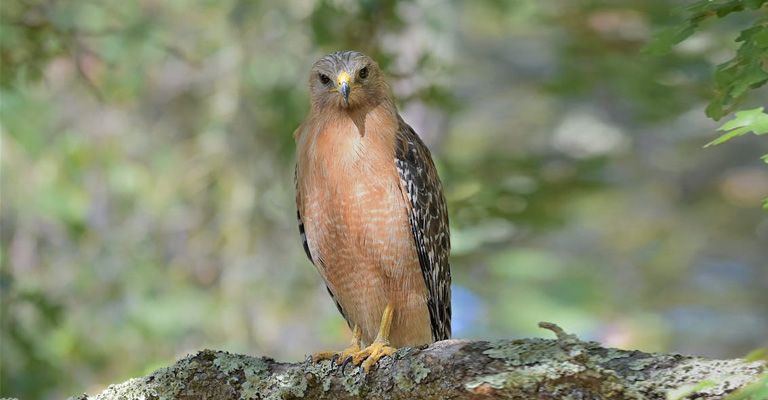
Why It Is Illegal to Kill a Hawk?
Here are the different reasons why it’s illegal to kill hawks:
Ecological Balance
Hawks, as apex predators, play a crucial role in maintaining the ecological balance of their habitats. They regulate populations of small mammals, birds, and reptiles, helping to control their numbers and prevent overpopulation. By keeping prey populations in check, hawks contribute to the overall health and stability of ecosystems.
Biodiversity Preservation
Hawks are part of the intricate web of biodiversity, and their presence signifies the health of their habitats. Removing hawks from the ecosystem can have far-reaching consequences.
A decline in their populations can disrupt the natural balance, leading to a cascading effect on other species. Preserving hawks helps safeguard biodiversity, ensuring the survival of a wide range of plant and animal species.
Migratory Bird Treaty Act
In the United States, the Migratory Bird Treaty Act (MBTA) is a crucial legislation that protects hawks and other migratory birds. Enacted in 1918, the MBTA prohibits the killing, capturing, or harming of migratory birds, their nests, or eggs without appropriate permits.
This federal law recognizes the importance of conserving these birds and ensures their protection during all stages of their life cycle, including nesting, migration, and breeding.
Conservation Efforts
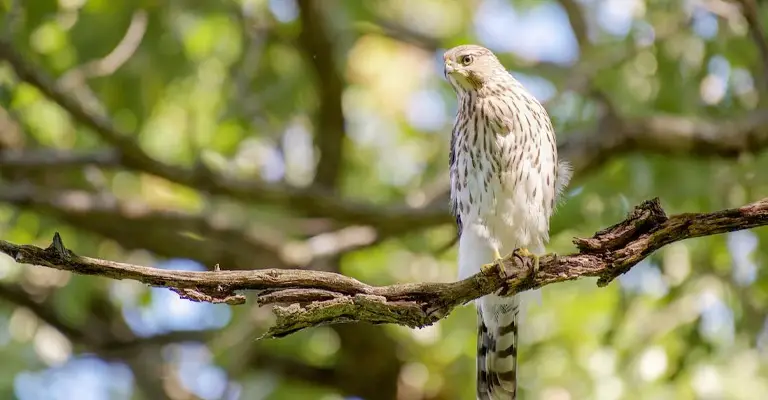
The illegal killing of hawks undermines the conservation efforts that have been put in place to protect these magnificent birds. Through research, monitoring, and conservation programs, scientists and organizations strive to gather knowledge about hawks, their habitats, and their conservation needs.
Killing a hawk disrupts these efforts and hampers the progress made in understanding and conserving these species.
Ethical Responsibility
Beyond legal protections, there is an ethical responsibility to respect and preserve the natural world. Hawks, as sentient beings, deserve our consideration and care.
Killing hawks for sport, trophy hunting, or any other purpose disregards their intrinsic value and the role they play in the environment.
Respecting and appreciating hawks fosters a sense of environmental stewardship and a commitment to preserving the planet’s biodiversity.
What Happens If You Shoot A Sparrow Hawk?
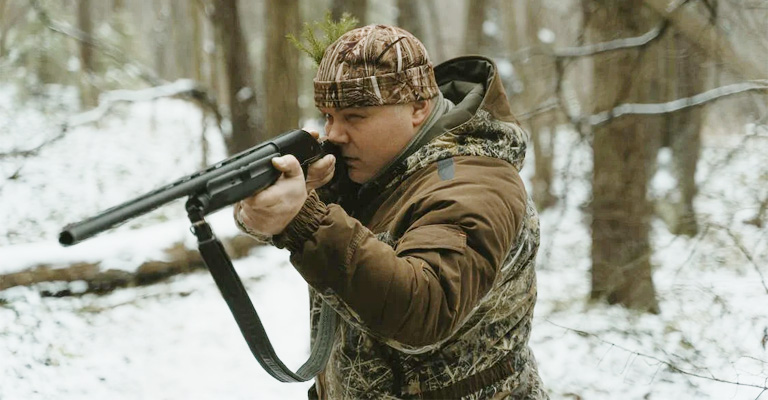
Shooting a sparrowhawk or any other protected bird of prey is illegal in many countries, including the United States, under wildlife conservation laws.
The consequences of shooting a sparrowhawk can vary depending on the jurisdiction and the specific circumstances, but here are some general outcomes that could result:
Legal Penalties
If caught and convicted of illegally shooting a sparrowhawk, you could face significant legal consequences. These penalties may include fines, imprisonment, probation, or a combination of these, depending on the severity of the offense and the applicable laws in your jurisdiction.
Civil Penalties
In addition to legal consequences, you may be liable for civil penalties. This can involve paying damages or restitution to compensate for the loss of the bird or its impact on the local ecosystem.
Loss of Privileges
If you hold any licenses, permits, or hunting privileges, they may be revoked or suspended due to the illegal act. This can include hunting licenses, firearm licenses, or any other permits related to wildlife or natural resources.
Reputation and Social Consequences
Illegal killing of protected birds of prey can lead to negative public perception and social consequences. It may damage your reputation among conservationists, bird enthusiasts, and the general public who value wildlife and animal welfare.
It’s crucial to understand and respect the laws and regulations in your area regarding protected species. If you encounter a problem with birds or wildlife, it’s advisable to contact local wildlife authorities, conservation organizations, or pest control agencies to seek appropriate and legal solutions.
Can You Shoot a Hawk If It Is Attacking Chickens?
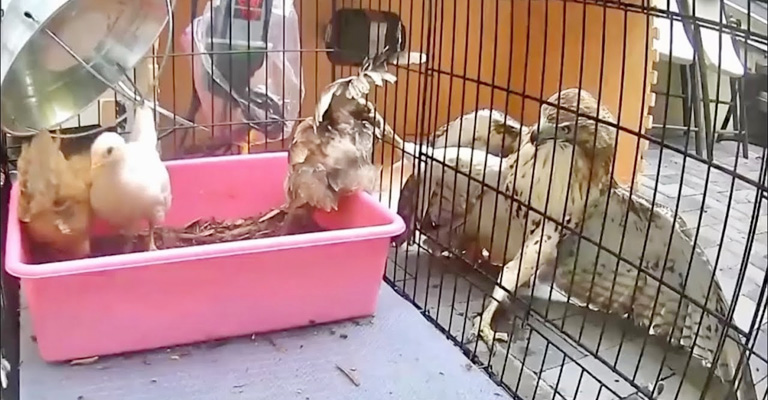
In situations where a hawk is attacking and threatening livestock, such as chickens, the laws and regulations regarding shooting or otherwise removing the hawk may differ depending on your location.
It’s essential to consult local wildlife authorities, conservation organizations, or agricultural agencies to understand the specific regulations and guidelines applicable to your area. These organizations caguideon how to protect your livestock while also complying with the law and minimizing harm to protected species.
In some cases, there may be legal provisions that allow for the removal of a hawk under specific circumstances, such as when it poses an immediate threat to livestock or property.
However, it is generally required to follow established protocols and obtain any necessary permits or authorizations before taking any action.
It’s important to note that non-lethal measures are often recommended as a first line of defense to deter hawks from preying on livestock.
Implementing protective measures like securing chicken coops with appropriate fencing, providing cover for the chickens, and using scare devices can help minimize conflicts between hawks and livestock.
Remember, it’s crucial to act by local regulations and to seek advice from relevant authorities to ensure that you are acting within the boundaries of the law while addressing the issue effectively.
How Can You Shoot Hawks Legally?
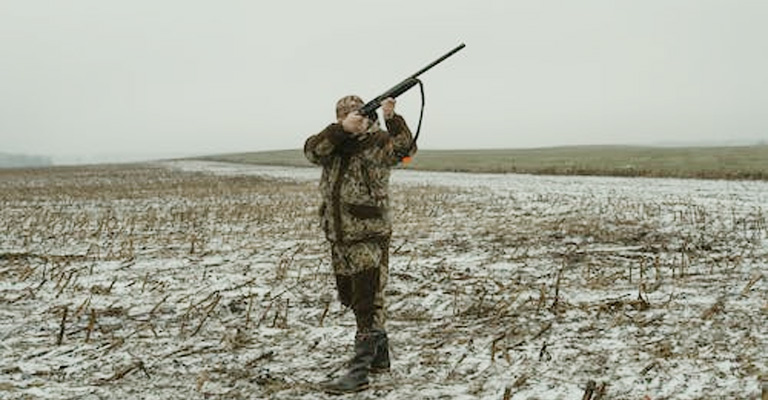
The legality of shooting hawks, or any other bird of prey, varies depending on the country and the specific laws and regulations in place. Shooting hawks is generally restricted and often illegal without proper permits or authorizations.
However, in certain circumstances where there is a legitimate need to protect livestock or property, some jurisdictions may provide specific provisions or permits for the legal removal of hawks. Here are a few general steps to follow if you believe it is necessary to legally shoot a hawk:
Research Local Laws
Familiarize yourself with the wildlife regulations and laws in your specific area. Consult local wildlife authorities, conservation organizations, or agricultural agencies to understand the rules and requirements for removing hawks legally.
Obtain Permits or Authorizations
If shooting a hawk is allowed under specific circumstances, you may need to obtain permits or authorizations from the relevant authorities.
These permits will outline the conditions under which you are permitted to take action and may require providing evidence of the threat to livestock or property.
Follow Protocols and Guidelines
If you are granted permission to shoot a hawk, you will likely be required to follow specific protocols and guidelines. These could include using specific firearms or ammunition, adhering to certain timeframes or locations, or employing humane shooting practices.
Document the Incident
Keep detailed records of the hawk’s activities and any damage caused to livestock or property. This documentation can be crucial when seeking permits or justifying your actions within the legal framework.
How to Obtain a Permit to Shoot Hawks?
Obtaining a permit to shoot hawks or any other protected bird of prey typically involves a specific process that varies depending on your jurisdiction and the specific circumstances. The following steps provide a general outline of how you might go about obtaining such a permit:
Research Applicable Laws and Regulations
Familiarize yourself with the wildlife conservation laws and regulations in your country, state, or region. Understand the specific provisions related to the removal or control of hawks or other protected bird species.
Consult local wildlife authorities, conservation organizations, or agricultural agencies to obtain accurate and up-to-date information.
Determine Eligibility and Justification
Determine if you meet the criteria for obtaining a permit. Typically, permits to shoot hawks are granted in cases where the hawk poses a significant threat to livestock or property and non-lethal methods have proven ineffective.
You may need to provide evidence, such as documented instances of hawk attacks or damage, to support your application.
Contact the Appropriate Authority
Identify the relevant authority responsible for issuing permits related to wildlife management or bird control in your area. This might be a wildlife agency, department of natural resources, or similar organization. Contact them directly to inquire about the permit application process and any specific requirements.
Complete the Permit Application
Obtain the necessary application forms and thoroughly complete them, providing all required information. This may include details about your situation, the specific species of hawk causing the problem, and the proposed method of control (such as shooting).
Submit Supporting Documentation
Along with the application form, you may need to submit additional documentation to support your request for a permit. This might include photographs, written descriptions of incidents, or expert opinions.
Pay Any Required Fees
Some permit applications may require the payment of fees. Ensure you are aware of any associated costs and make the necessary payment when submitting your application.
Await Review and Approval
Once your application is submitted, it will be reviewed by the relevant authority. This process may involve evaluating the provided information, conducting site visits, or seeking expert opinions. The time required for review and approval can vary, so be patient during this stage.
Comply with Permit Conditions
If your application is approved, you will receive the permit with specific conditions outlined. It is crucial to thoroughly understand and adhere to these conditions, which may include restrictions on methods, timeframes, reporting requirements, or the use of trained personnel.
FAQs
The legal consequences of killing a hawk vary depending on the country and the specific laws in place. In the United States, for example, killing a hawk is a violation of the Migratory Bird Treaty Act (MBTA) and can result in significant fines and even imprisonment.
Penalties can range from thousands of dollars in fines to up to six months of imprisonment, depending on the circumstances and severity of the offense.
Protecting hawks from being killed is crucial for several reasons. Firstly, hawks play a vital role in maintaining the balance of ecosystems by controlling populations of small mammals and birds. Secondly, they contribute to biodiversity preservation, as their presence signifies a healthy habitat.
Laws protecting hawks typically include exceptions for certain circumstances, such as permits for scientific research, rehabilitation, or falconry purposes. However, these exceptions are tightly regulated and require specific permits or licenses.
Many countries have laws and regulations in place to protect various species of hawks. The specific species protected can vary depending on the region. For example, in the United States, the MBTA protects all native migratory birds, including several species of hawks.
If you encounter a wounded or injured hawk, it is important to contact local wildlife authorities, wildlife rehabilitation centers, or bird rescue organizations. These experts have the knowledge and resources to provide proper care and rehabilitation for the hawk.
Bottom Line
So, now you know why is it illegal to kill a hawk. The illegal killing of hawks is rightly met with strong legal consequences due to their ecological significance and the need to protect their populations.
Hawks, as apex predators, contribute to the health and balance of ecosystems, and their preservation is essential for maintaining biodiversity.
Laws such as the Migratory Bird Treaty Act reinforce the importance of safeguarding these birds and provide a legal framework for their protection.
By recognizing the ecological, biodiversity, and ethical reasons for preserving hawks, we can promote a culture of respect and conservation. Appreciating the beauty and significance of these birds of prey inspires us to act as responsible custodians of the natural world.
Let us stand united in our commitment to protecting hawks and ensuring their place in the skies for generations to come.